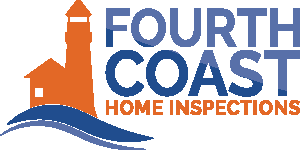Services
General Home Inspection
General Home Inspection is a non-intrusive visual-only process by which a home inspector observes and provides a written report, (In most cases within 48 hours), of the systems and components of a residential building including:
– Heating System
– Cooling System
– Plumbing System
– Electrical System
– Structural Components (Foundation, roof, masonry structure, exterior and interior components)
Pre-Listing Inspection
Home sellers should always consider a Pre-listing Inspection. Eventually, your buyers are going to want to conduct an inspection. You may as well know what they are going to find by getting there first. Having an inspection performed ahead of time helps in numerous other ways:
• Allows you to see your home through the eyes of a critical and neutral third party
• Alerts you to immediate safety issues before agents and visitors tour your home
• May alert you to items of immediate concern, such as radon gas or active termite infestation
• Defects won’t become negotiating stumbling blocks later
• There is no delay in obtaining the Use and Occupancy Permit
• You have the time to hire reasonably priced contractors or make the repairs yourself, if qualified
• Helps you to price your home realistically
• May relieve prospective buyers’ concerns and suspicions
• May encourage the buyer to waive his inspection contingency
• Reduces your liability by adding professional supporting documentation to your disclosure statement
Septic Dye Testing
The purpose of a septic dye test is to locate obvious, catastrophic septic system failure. During a septic dye test, fluorescent dye is flushed into the system. This is followed by an inspection of nearby surface waters. If the dye can be seen in nearby surface waters, the septic system is failing.
Two key things to remember about Septic Dye Testing are:
1) Your system could very well be failing even if the septic dye test does not indicate it.
2) It is only part of a proper, thorough septic system inspection. If you are
buying a house, I strongly encourage you to do a complete, thorough
septic system inspection or it could really cost you.
Radon Testing
Radon is a radioactive gas. It is colorless, odorless, tasteless, and chemically inert. Unless you test for it, there is no way of telling how much is present. Radon is formed by the natural radioactive decay of uranium in rock, soil, and water. Naturally existing low levels of uranium occur widely in the Earth’s crust. It can be found in all 50 states. Once produced, Radon moves through the ground and into the air above. Some remains below the surface and dissolves in water that collects and flows under the ground’s surface.
Water Quality Testing
In the United States, the EPA defines pure water as water free from all types of bacteria and viruses. But, there is more to purity than just that.
Consider testing your well for pesticides, organic chemicals, and heavy metals before you use it for the first time. Test private water supplies annually for nitrate and coliform bacteria to help detect contamination problems early.
FHA/VA Water Testing
FHA & VA Water Testing is a minimum panel for drinking water contaminants. Accordingly, your drinking water samples are analyzed for Total Coliform, E. coli, Lead, Nitrate, Nitrite, and Turbidity.
Well Flow Testing
A Well Yield Test determines the balance between the maximum amount of water that can be pumped out of the well and the amount of water that recharges back into the well from the surrounding ground water source. Balance is achieved when the water level within the well stops dropping for a given discharge rate.
Wood Destroying Insect
The Wood Destroying Insect (WDI) inspection identifies past or present insect infestation, along with associated wood damage, that can be identified with a visual inspection of readily accessible areas of the structure. WDI Inspection is required by some banks or mortgage types (HUD, FHA, VA). Termite inspection certificates (Form NPMA-33 wood destroying inspection report) must be completed by a NYS/DEC Licensed/Certified Commercial Pesticide Technician.
